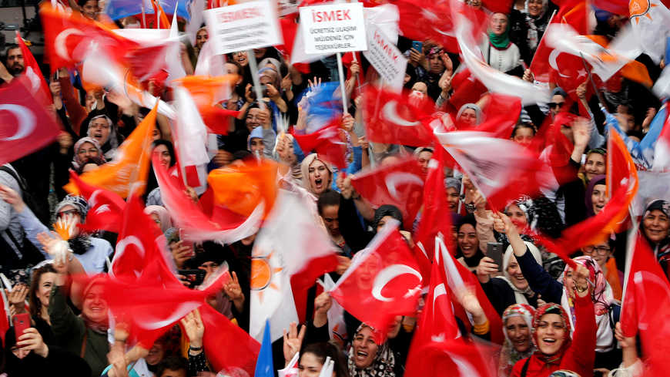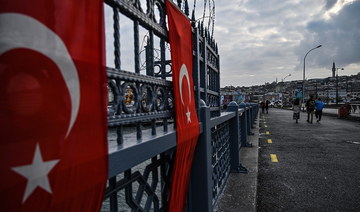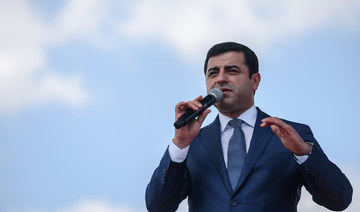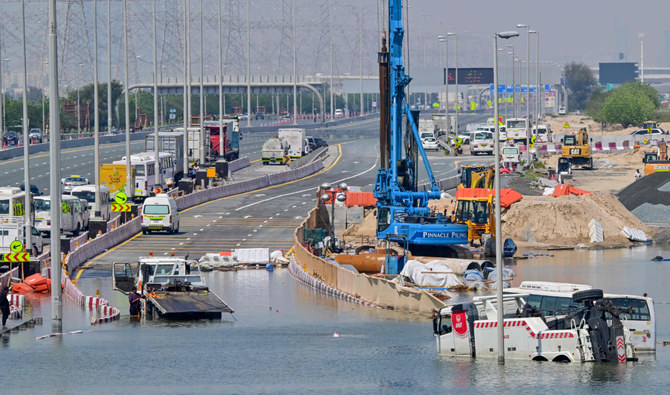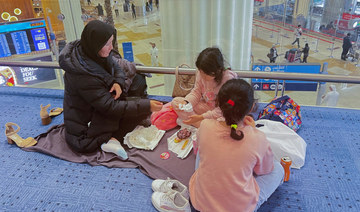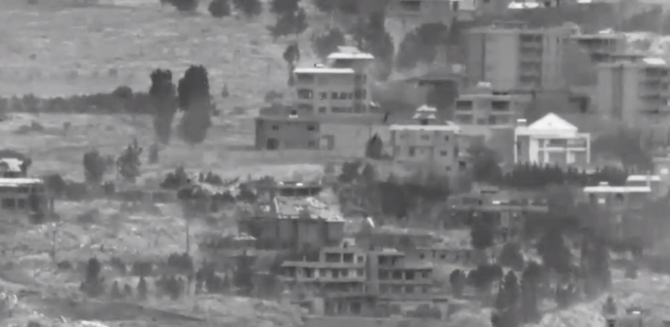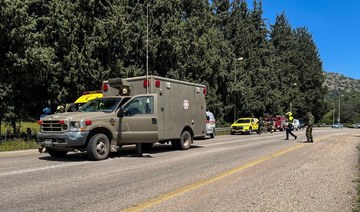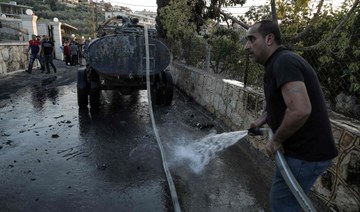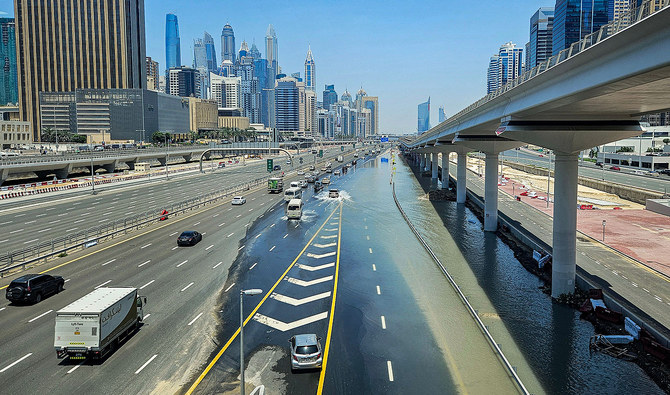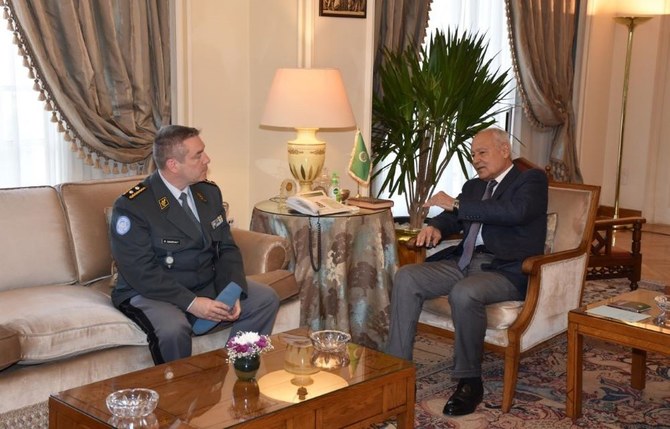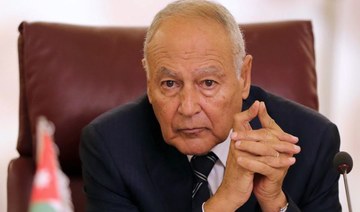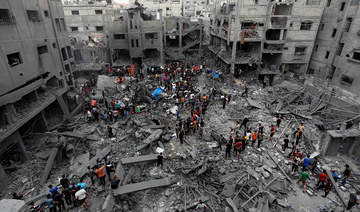ANKARA: Turkey’s highly contentious executive presidential system is again under the spotlight following a new report released by the Checks and Balances Network, a prestigious umbrella organization gathering 294 non-governmental organizations.
Turkey’s presidential system was launched in July 2018, sparking widespread debate because of the powers it put in the president’s hands, diminishing the role of the parliament, leading to the erosion of judiciary oversight and undermining civil society’s ability to monitor public projects.
The report asserts that this system has led to a hyper-centralization of the country’s decision-making process because the president is not constrained by any supreme body or constitutional breaks.
The Checks and Balances Network has recommended reforms by separating the head of state from the party chair. It also suggested efficient parliamentary auditing over the government and president.
With the new system, presidential decrees — which are generally signed overnight — are excluded from the parliament review, while unanswered parliamentary questions to the vice-president and ministers have become common.
In the 27th term of the parliament, a total of 21,504 parliamentary questions have been submitted, but 11,663 of them have been unanswered. Only 1,700 parliamentary questions were answered in time.
“The principle of the separation of powers has been obstructed in favor of the executive power. The system now permits the president to hold the joint offices of the head of state, head of government and head of the ruling party. This situation has pushed Turkey to a hyper-presidential system,” said the report.
Meanwhile, Turkish President Recep Tayyip Erdogan has sued opposition Republican People’s Party (CHP) Group Deputy Chairman Ozgur Ozel for emotional damages after he called him a “dictator.” Ozel recently resembled Erdogan to Spanish dictator Francesco Franco as Erdogan referred to the main opposition as a “fifth column.”
The new report comes soon after the publication of a study about polarization in Turkey conducted by the Istanbul Bilgi University and German Marshall Fund, which found that 90 percent of CHP supporters and 77 percent of supporters from the Peoples’ Democratic Party think the executive presidential system is bad for the country’s future.
Rights activists have reacted to these reports by emphasizing the negative repercussions of the presidential system over freedoms and rights.
“Before the presidential system came into force, the pledge was to enlarge the area of rights and freedoms and convey reform agendas that enhance capacity of inclusive institutions and democracy which already deteriorated in the state of emergency period,” Hayriye Atas, general director of Checks and Balances Network, told Arab News.
However, since 2018, Turkish NGOs have seen a serious backsliding in their operational environment. In 2020, the activities of the civil society — including their meetings — have been curtailed due to pandemic rules.
Due to a new law, NGOs are now obliged to notify the names of their members to the government — which many fear will deter joining civil society organizations over concerns that they could be monitored.
“It can be noticed when we follow detentions and arrests of activists and human rights defenders so far. In addition, there is still a lack of an inclusive legislative framework that regulates civil society. All amendments and legislations relating to civil society pass through omnibus bills swiftly that don’t allow for consensus or participation of related actors in the legislation process,” Atas said.
The report notes that, while executive power and its control area has enhanced, the efficiency of parliament and the rule of law has decreased dramatically, with executive intervention in civil society area becoming obvious.
“If this process continues, the movement area of civil society is constricted and democracy efforts of the country will regress in the long run,” Atas said.
Turkey’s opposition parties and NGOs are concerned by a draft bill by the government that could eliminate civil society activities in the country by allowing the Interior Ministry to replace their boards and suspend activities.
According to Atas, the parliament lost nearly all of its leverage over the decision-making process.
“The main phenomenon behind the presidential system is the strict separation of power among the judiciary, executive and parliament. In this system, the parliament should be especially empowered and efficient to monitor government, the rule-making power mainly belongs to the parliament, but the presidential system is run in favor of executive power through omnibus bills, presidential decrees, weak parliamentary commissions,” she said.
Hakan Yavuzyilmaz, a policy analyst, said one of the prevalent features of Turkish politics has been the presence of severe political polarization that becomes a facilitating factor for the democratic backsliding in the country.
“Following the transition to a presidential system, the political and social polarization did not diminish. Under such a prevalent polarization, it is hard to conclude that Turkish citizens are becoming apolitical. Nevertheless, we are also seeing a growing number of undecided voters,” he told Arab News.
“Such a voter detachment shows a warning signal for the stability of the party system. Time will tell whether existing political parties can successfully re-mobilize this electorate within the grey zone,” he added.



